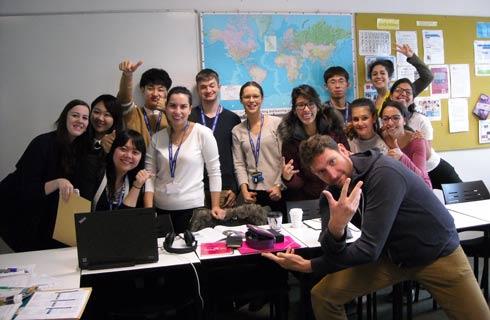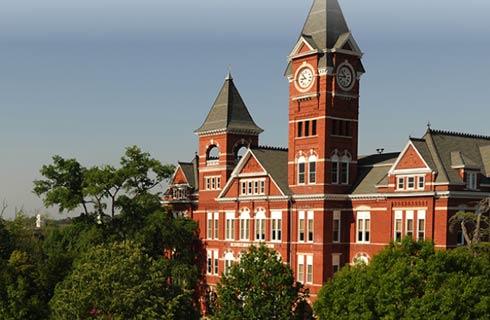- IDP China>
- 课程库>
- 工程与技术>
- 物理科学>
- 理论和数学物理>
- Master of Mathematics in Applied Mathematics - Mathematical Physics
应用数学数学硕士-数学物理
Master of Mathematics in Applied Mathematics - Mathematical Physics

学历文凭
Masters Degree

专业院系
Department of Applied Mathematics

开学时间

课程时长

课程学费

国际学生入学条件
IDP—雅思考试联合主办方

雅思考试总分
7.0
- 雅思总分:7
- 托福网考总分:90
- 托福笔试总分:160
- 其他语言考试:PTE (Academic) - 63 (writing 65, speaking 65)
CRICOS代码:
申请截止日期: 请与IDP联系 以获取详细信息。
课程简介
Our research in Mathematical Physics focuses on quantum information theory, nanotechnology and quantum gravity and cosmology.The goal of quantum information theory is to study and utilize the profound way in which quantum effects can influence the physical propagation and processing of information. It is part of the world-wide effort to develop methods for controlling individual molecules, atoms and photons. One of the main goals is to utilize the quantum mechanical phenomenon of entanglement to achieve a quantum parallelization of computation. This can then provide an exponential speed-up of certain types of calculations. The same quantum phenomena can be used to protect information channels (for example, fibre optic channels) from eavesdropping, a proven technology which already has cryptographic applications. In this context, some of our faculty members are closely involved with University of Waterloo’s Institute for Quantum Computing (IQC).
相关申请
 预科
预科 奖学金
奖学金 实习机会
实习机会 在校学习
在校学习 跨境学习
跨境学习 校园授课-线上开始
校园授课-线上开始 在线/远程学习
在线/远程学习
开学时间&学费
学费信息仅供参考,请与IDP联系以获取详细信息
| 开学时间 | 时长 | 学费 | 地点 |
|---|
学校排名

世界排名201
数据源:
泰晤士高等教育世界大学排名
关于滑铁卢大学

滑铁卢大学是加拿大滑铁卢市的一家著名大学,是一所以研究为主的中等大小的公立大学,创建于1957年。以数学、计算机科学、工程学而闻名。该校位于安大略省的西南面的滑铁卢市,占地面积约为1000英亩。滑铁卢大学成立至今,仅数十年便跻身加拿大名校之列,是加拿大发展最快的学校。2011年到2013年,该校一直稳居麦克林杂志评选的加拿大综合性大学排名的第三位,是北美地区最优大学之一,其数学,计算机科学和工程学科教学水平居世界前列。特别是做为北美地区第一个经认可建立数学系的大学,拥有世界上最大的数学系以及世界上最大的合作办学项目。学校共授予100多个本科学位专业,28种硕士及博士学位专业,学校的代表队曾多次获得ACM 国际大学生程序设计竞赛的冠军。
本校相关课程

系统设计工程哲学博士
学历文凭
Ph.D.
开学日期
课程费用总额


系统设计工程工程学硕士
学历文凭
Masters Degree
开学日期
课程费用总额


社会学文学硕士[仅课程]
学历文凭
Masters Degree
开学日期
课程费用总额


Doctor of Philosophy in Religious Studies
学历文凭
Ph.D.
开学日期
课程费用总额


运动机能学博士-工作与健康
学历文凭
Ph.D.
开学日期
课程费用总额


娱乐与休闲研究哲学博士
学历文凭
Ph.D.
开学日期
课程费用总额

其他相关课程

数学物理数学学士学位(荣誉学位)
 滑铁卢大学
滑铁卢大学学历文凭
Bachelor Degree with Honours
开学日期
课程费用总额


数学和物理科学学士学位(荣誉学位)
 麦吉尔大学继续教育学院
麦吉尔大学继续教育学院学历文凭
Bachelor Degree with Honours
开学日期
课程费用总额


理论物理哲学博士
 纽芬兰纪念大学
纽芬兰纪念大学学历文凭
Ph.D.
开学日期
课程费用总额


数学物理学理学士(荣誉学位)
 萨斯喀彻温大学
萨斯喀彻温大学学历文凭
Bachelor Degree with Honours
开学日期
课程费用总额


数学物理学理学士(荣誉学位)
 西蒙菲莎大学
西蒙菲莎大学学历文凭
Bachelor Degree with Honours
开学日期
课程费用总额


数学优化数学学士学位(荣誉学位)
 滑铁卢大学
滑铁卢大学学历文凭
Bachelor Degree with Honours
开学日期
课程费用总额










